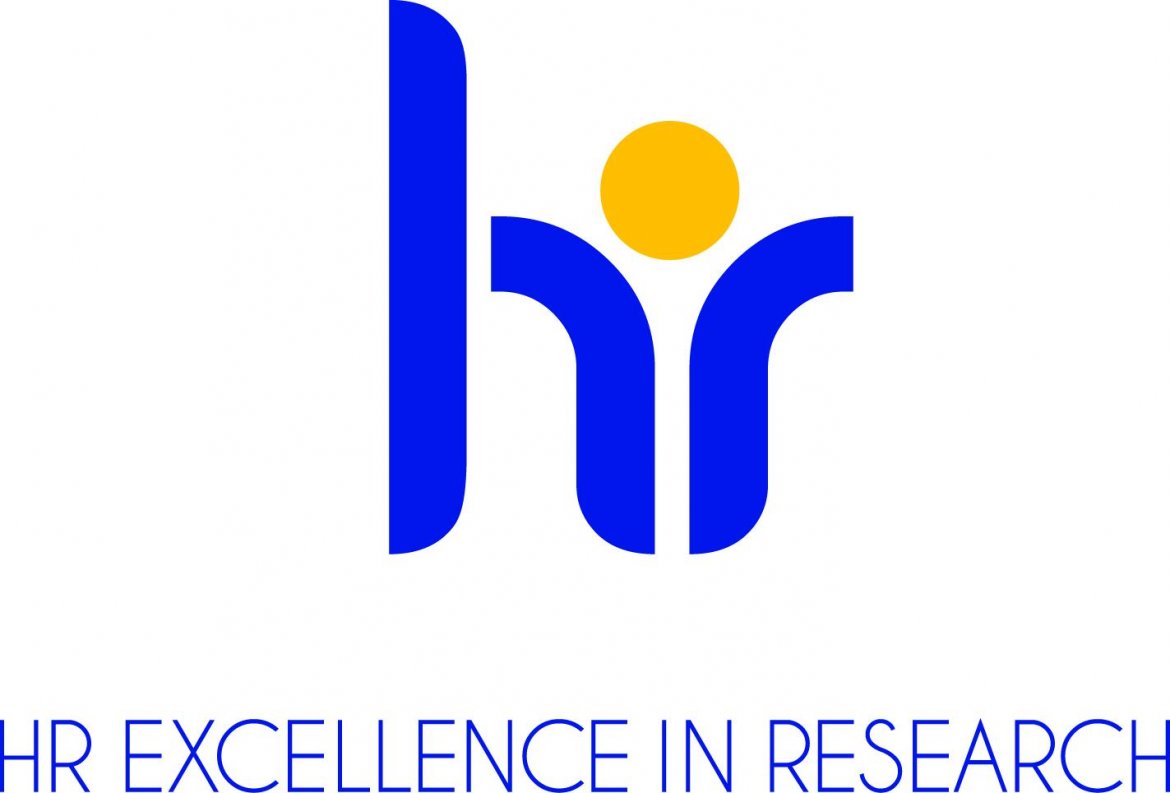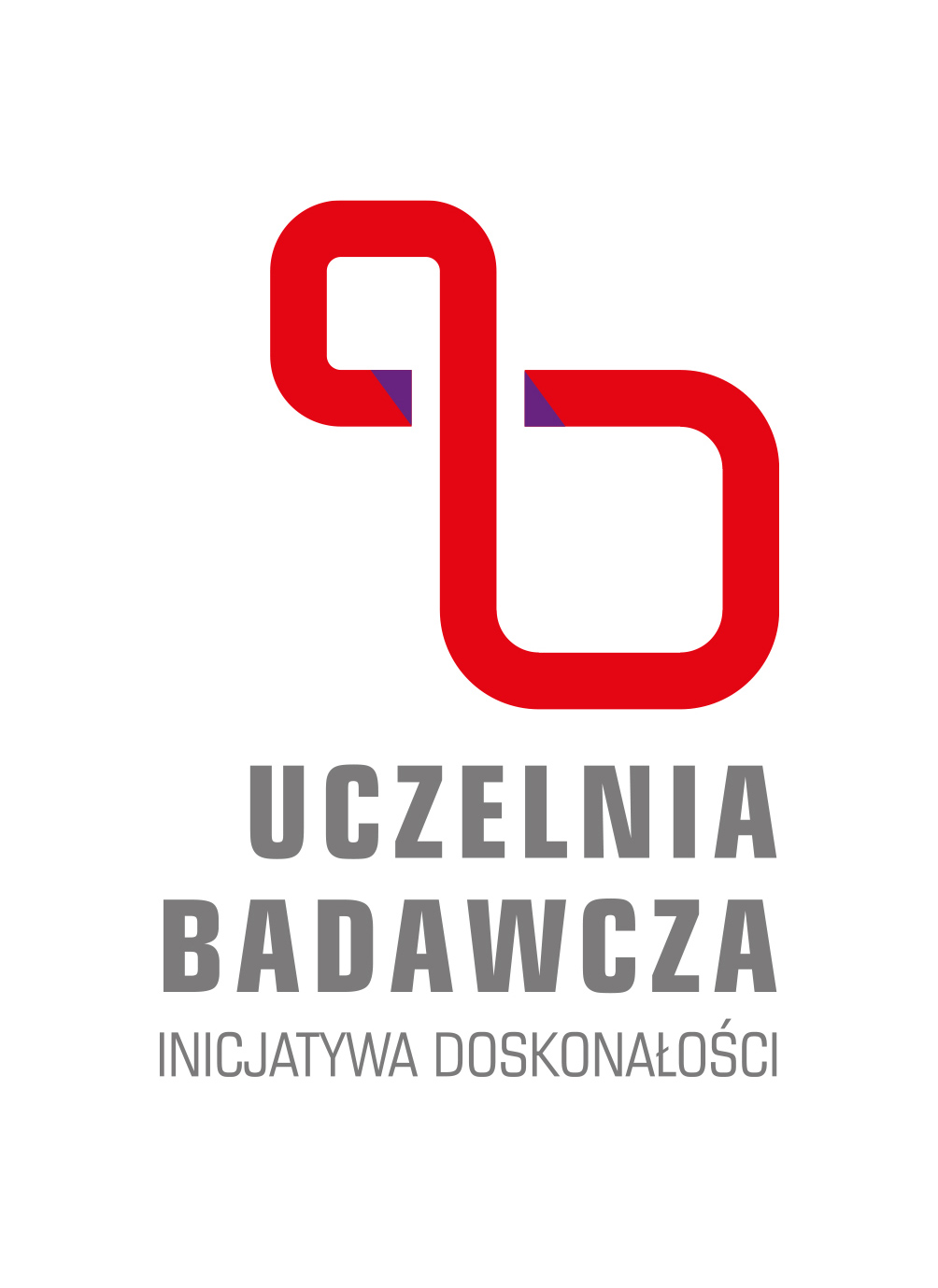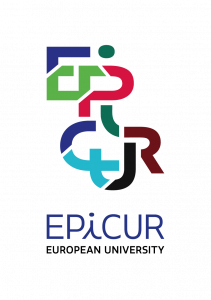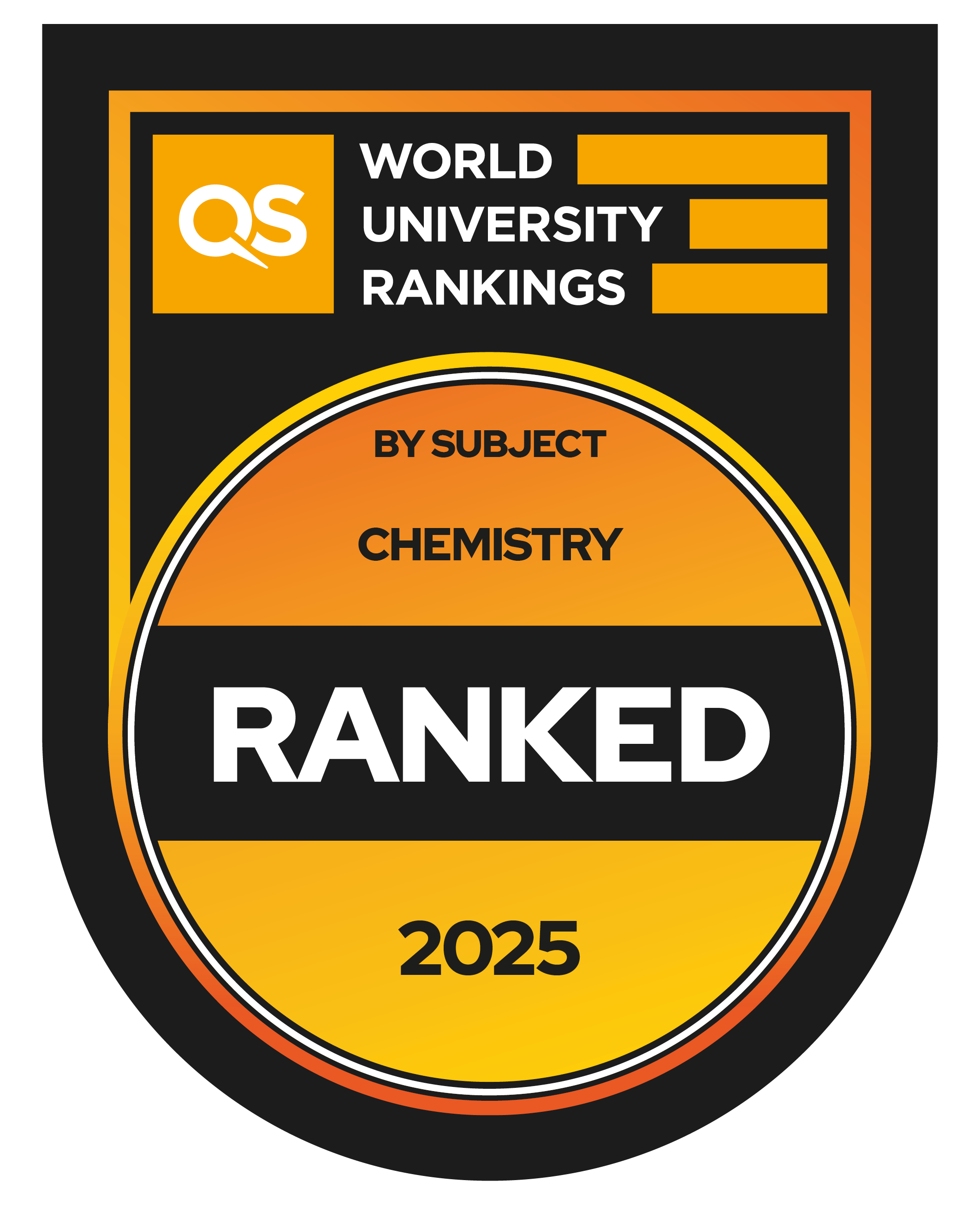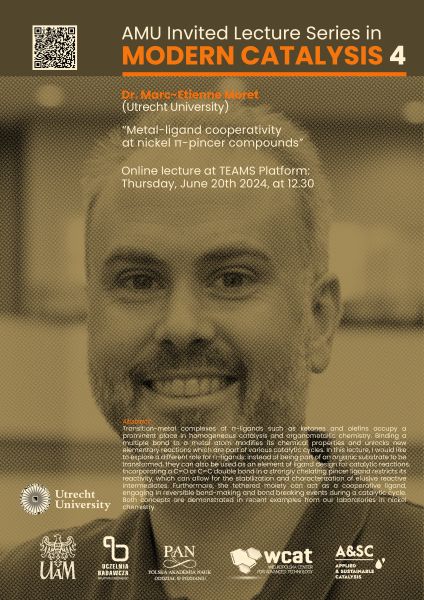W imieniu Organizatorów serdecznie zapraszamy na trzeci wykład z serii AMU Invited Lecture Series in MODERN CATALYSIS 4, który wygłosi dr Marc-Etienne Moret z Uniwestystu w Utrechcie. (https://www.uu.nl/staff/MMoret).
Wykład pt. „Metal-ligand cooperativity at nickel π-pincer compounds” odbędzie się w czwartek 20 czerwca 2024 roku, o godz. 12.30 na platformie TEAMS.
Dr Marc-Etienne Moret jest laureatem grantu ERC Starting. Jego badania dotyczą chemii metaloorganicznej i katalizy z wykorzystaniem kompleksów Ni, Co, Fe, stosowanych zwłaszcza w syntezie związków krzemu i germanu.
Marc-Etienne Moret obtained an MSc degree in chemistry from the Ecole Polytechnique Fédérale de Lausanne (EPFL) in 2005, and a PhD degree from the Eidgenössische Technische Hochschule Zürich (ETHZ) with Prof. P. Chen in 2009. His PhD thesis describes the study of reaction mechanisms in organoplatinum chemistry by mass spectrometric methods, as well as novel platinum-copper heterobimetallic compounds and their reactions. Following his graduation, he moved to the California Institute of Technology (Caltech) for a postdoctoral stay (2010-2012) in the group of Prof. Jonas C. Peters on the activation of N2 by synthetic iron complexes, for which he was awarded a fellowship for prospective researchers and a fellowship for advanced researchers from the Swiss National Science Foundation (SNF). In August 2012, he accepted a position as assistant professor in the Organic Chemistry and Catalysis group at Utrecht University. He was awarded tenure in 2018 and became associate professor in 2022. There, he leads a research program on organometallic chemistry and catalysis with earth-abundant elements. His group investigates the use of cooperative ligands for catalysis with non-noble transition metals (Ni, Co, Fe) and bond activation at geometrically constrained group 14 centers (Si, Ge). In 2017 he obtained ERC Starting Grant: “Cooperative Acceptor Ligands for Catalysis with Earth-Abundant Metals – CALCEAM” (1.5 M €). He is an author of more than 70 papers (h-index: 25, based on Scopus).
Wykład realizowany jest przez Laboratorium Stosowanej i Zrównoważonej Katalizy Centrum Zaawansowanych Technologii UAM ze wsparciem Inicjatywy Doskonałości – Uczelnia Badawcza. Dodatkowo patronat nad wykładem objęła Komisja Nauk Chemicznych PAN Oddział w Poznaniu
